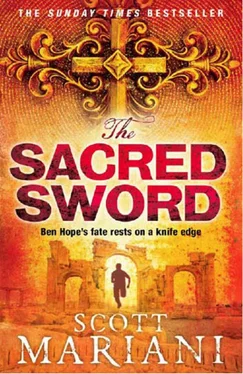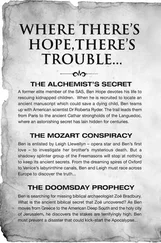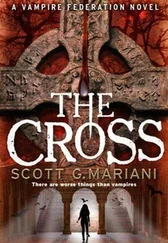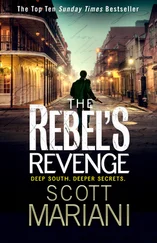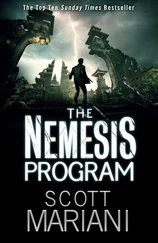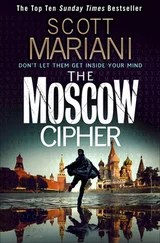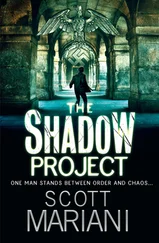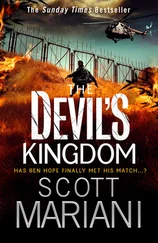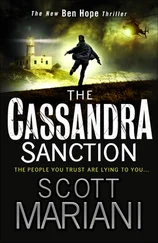Scott Mariani - The Sacred Sword
Здесь есть возможность читать онлайн «Scott Mariani - The Sacred Sword» — ознакомительный отрывок электронной книги совершенно бесплатно, а после прочтения отрывка купить полную версию. В некоторых случаях можно слушать аудио, скачать через торрент в формате fb2 и присутствует краткое содержание. Жанр: Триллер, на английском языке. Описание произведения, (предисловие) а так же отзывы посетителей доступны на портале библиотеки ЛибКат.
- Название:The Sacred Sword
- Автор:
- Жанр:
- Год:неизвестен
- ISBN:нет данных
- Рейтинг книги:4 / 5. Голосов: 1
-
Избранное:Добавить в избранное
- Отзывы:
-
Ваша оценка:
- 80
- 1
- 2
- 3
- 4
- 5
The Sacred Sword: краткое содержание, описание и аннотация
Предлагаем к чтению аннотацию, описание, краткое содержание или предисловие (зависит от того, что написал сам автор книги «The Sacred Sword»). Если вы не нашли необходимую информацию о книге — напишите в комментариях, мы постараемся отыскать её.
The Sacred Sword — читать онлайн ознакомительный отрывок
Ниже представлен текст книги, разбитый по страницам. Система сохранения места последней прочитанной страницы, позволяет с удобством читать онлайн бесплатно книгу «The Sacred Sword», без необходимости каждый раз заново искать на чём Вы остановились. Поставьте закладку, и сможете в любой момент перейти на страницу, на которой закончили чтение.
Интервал:
Закладка:
Wesley considered the question, pausing to wet his lips with another sip of wine. ‘I mentioned before the sword that Peter the Apostle used to slice off the ear of Malchus at the scene of Jesus’ arrest. Now, that particular weapon is believed to have passed into the hands of Joseph of Arimathea, the man who gave up his own prepared tomb for Christ to be buried in.’
‘I know who Joseph of Arimathea was.’
‘Fine. Then you know that legend tells how Joseph later travelled to Britain, where he became the first Christian bishop there. Some accounts say that he brought with him the Holy Grail, given to him by a ghostly apparition of Jesus. More likely, what he brought with him was St Peter’s sword. We know that from there it made its way eastwards, until it finally shows up in Poznan? Poland, sometime in the tenth century. You can still see its remains on display at the Poznan? Archdiocesan Museum, and I’ve been there to examine them. Believe me, there ain’t much left but a pitted, blackened hunk of rust. That’s what happens to a piece of low-grade steel after a couple of thousand years, or even just a few centuries. You should see some of the rotted old sticks in my collection, dating back to as recently as the fourteenth century.’
Wesley turned to the sword on the table and ran his fingers delicately along its smooth blade. ‘Look at it. It’s almost perfectly preserved, and you can’t put that down purely to the arid climate of Masada.’ He glanced up at Ben. ‘What do you know about metallurgy?’
Ben had to admit that he didn’t know a great deal at all.
‘Without the development of forged steel,’ Wesley said, ‘we’d still be in the Bronze Age. It changed everything and made our whole history possible, but it wasn’t an overnight process. The reason so many ancient weapons have simply rotted away is that most of them were made from second-rate metal. Thankfully, not all were. As far back as the sixth century b.c., master craftsmen were forging steel weapons that were as strong as those we know today. Ever heard of Wootz steel?’
Ben hadn’t.
‘The name originates from India, where it was being developed from about 300 b.c. onwards. It’s an exceptional grade of iron ore steel, extracted from raw ore and formed using a crucible to melt and burn away impurities and to add carbon and other ingredients known only to the most skilled swordsmiths. It was a delicate process — too much carbon and you had wrought iron, too soft. Too little carbon and you ended up with cast iron, which was hard but also brittle and prone to shattering. But get the balance of the ingredients right, and you had one ass-kicking fighting sword. It wouldn’t chip, snap or bend. It would withstand both the rigours of battle and the test of time. Wootz steel was so sought after that it was traded widely throughout ancient Europe, the Arab world and the Middle East, where it was known as Damascus steel. Needless to say, it was extremely valuable and expensive.’
Wesley picked up the sword. ‘And here’s an example of an early Damascene blade, right here. Now, I’ve had this thing analysed by a hundred experts. The tests show an incredibly refined internal structure, containing carbon nanotubes and nanowires and all kinds of stuff that would blow away even the most expert modern-day swordsmith. We couldn’t even replicate a blade like this nowadays. It’s a lost art.’
He swished the sword through the air. ‘In the first century a.d. and for a very long time afterwards, a sword of this quality would have represented the ultimate technology, the equivalent of the most ultra-advanced electronics in our age. No ordinary person could aspire to owning one. It’s even more beautifully made than the bronze khopesh swords found in the burial chamber of Tutankhamen. In other words, what we’re looking at here was a weapon forged for a king. And not just any king, either.’
Wesley suddenly thrust the blade at Ben, the point stopping a foot from his chest. ‘Again, that was all groundwork. Now here comes the best part. Take a look at the blade inscription. As you can see, it’s pretty badly worn and faded, unreadable in places. Make anything out?’
Ben peered at the barely-visible markings on the blade and could just about discern the faint outlines of curved lettering engraved into the steel.
‘It’s Aramaic,’ Wesley said. ‘I paid a specialist team three hundred thousand bucks to work with a language expert and produce a computer-generated image of what the inscription would have looked like two thousand years ago. Want to know what they came up with?’ He grinned at Ben with a look that said, ‘Are you ready for this?’
Then he said, ‘The inscription reads, “Hosanna to the Son of David”.’
Chapter Fifty-Six
Ben stared at the blade. Was it possible he was really looking at the sword of Jesus Christ?
‘Okay, it’s not outright proof,’ Wesley said, still grinning. ‘But it’s near as dammit, when you place the sword in its historical context.’
‘Has this thing been verified?’ Ben asked after a few moments’ stunned silence. It was becoming harder to deny the possibility that Wesley was right.
Wesley’s grin fell away. ‘That’s been a sticking point from the beginning,’ he admitted. ‘I’ve spent almost three years trying to persuade any number of university historians and other academics to see what’s in front of them, but they won’t open their goddamn eyes. The problem is that the sword is technically unprovenanced. In other words, it wasn’t personally excavated by archaeologists who would’ve placed it on official record, dated it, certified it, and so on. As things stand, nobody will accept that it was a legitimate discovery from the excavation of Masada, and so the matter of its origin falls into question. It’s frustrating, but I believe the truth will out one day. Fabrice and Simeon believed it too.’
‘So this was what my dad was writing his book about?’ Jude said. ‘The sword of Jesus?’
Wesley nodded. ‘I first met your father at a construction site near Millau in France, where I was overseeing the restoration of a ruined medieval church. He’d turned up hoping to learn something of how it was done. Fabrice was the local minister, and the three of us kind of hooked up and hit it off as friends. At that time I was still so dizzy about the discovery of the sword, I was bursting to tell someone about it. So I confided in them. They took a little persuading, at first, but before long they were as excited as I was. That’s where it began, our little fellowship. I flew them over to the Whitworth Mansion to see the sword, and sometime later we all travelled together to Israel to meet Hillel and see for themselves where he’d found it.’
Wesley gazed into space and was silent for a few moments, remembering his lost friends. ‘I’m not a religious man,’ he went on. ‘I don’t know if there’s a heaven, or a hell, or if there’s anyone up there watching over us. But one thing I know for sure is that I’d hate to see the churches crumble into dust along with the old traditions. I’m glad I’ll be dead and gone before that day comes. That’s why I was worried about the sword at first. I told Simeon and Fabrice my concerns, that going public with the idea of Christ as a freedom fighter, a kind of Che Guevara or Robin Hood figure of ancient times, might do more harm than good. Next thing the pro-atheist lobby would be using it to their advantage — “See, folks? He wasn’t the son of God after all”.
‘But Simeon turned me around on that one. He believed it was time for the church to stand up strong against the rising tide of secularism. Talked about the responsibility of modern clergymen to move on from the old ways and bring Christ more into line with the cultural heroes of today, for a younger and more modern audience. He said the modern Christian faith was fighting a battle for its survival, and the sword of Jesus would give it the power to unite and withstand its enemies. He was so impassioned — you should have heard him talk.’
Читать дальшеИнтервал:
Закладка:
Похожие книги на «The Sacred Sword»
Представляем Вашему вниманию похожие книги на «The Sacred Sword» списком для выбора. Мы отобрали схожую по названию и смыслу литературу в надежде предоставить читателям больше вариантов отыскать новые, интересные, ещё непрочитанные произведения.
Обсуждение, отзывы о книге «The Sacred Sword» и просто собственные мнения читателей. Оставьте ваши комментарии, напишите, что Вы думаете о произведении, его смысле или главных героях. Укажите что конкретно понравилось, а что нет, и почему Вы так считаете.
